#mr monk and the buried treasure
Explore tagged Tumblr posts
Text
People who like to point out how it's unrealistic that characters never use the bathroom should watch Monk. Those characters have to pee like all the time.
#just to name a few episodes:#mr monk gets stuck in traffic#mr monk and the buried treasure#mr monk and the daredevil#mr monk and the critic#and there are many more#monk#monk 2002#monk tv#mr monk#adrian monk#captain stottlemeyer#captain leland stottlemeyer#leland stottlemeyer#randy disher#julie teeger#tony shalhoub#ted levine#jason gray stanford#emmy clarke
44 notes
·
View notes
Text

Stottlemonk Moments:
Monk s06ep06: "Mr. Monk and the Buried Treasure"
#stottlemonk#stottlemeyer x monk#mnk06#monk season 6 ep 6#we need a 5+1 fic that's like “5 times stottlemeyer saved monk + 1 times monk saved stottlemeyer” or something#or “5 times stottlemeyer saved monk and 1 time he didnt (but not bc monk died!!)”
31 notes
·
View notes
Text

The complete plushie collection! It ended up at an even 90 friends!
The only ones not pictured are one squishmallow I found buried in my closet after this picture was taken and my car buddy Hamburger the forest demon
I also have a whole list of them that I'll put under the cut! Some of the names are very silly :)

1. Big Bear
2. Treasure (Squishmallow cat)
3. Oobleck the elephant
4. Plague Doctor
5. Brighton Bear
6. Big Dog
7. Little Dog
8. Blah the snake
9. Mama Rex
10. Benvolio
11. Vampire Bat
12. Spiderman
13. Pleakley (fish squishmallow)
14. Red Fox (squishmallow)
15. Grogu pillow pet
16. Llama Mama
17. Tiger
18. Puppy trio one
19. Puppy trio two
20. Puppy trio three
21. Elefun (yellow elephant)
22. Taddle Toes the alien
23. Fruity squishmallow (not pictured)
24. Darth Bear-der
25. Clark the supercow
26. Brucie Bear
27. Rico the zomb frog
28. Buffy the rabbit
29. Black Friday Bear
30. Creeper
31. Mona the bearlien
32. BonBon teddy
33. Ferrari the timeless teddy
34. Pawlette the rabbit
35. Melanie the crochet hippo
36. BeeGee the froggie
37. Schlepp the bear
38. Rock lobster the triceratops
39. Sub Zero
40. Dexter dragon
41. Val the cow
42. Hello Kitty squishmallow
43. Miffy
44. Eeyore
45. Piglet
46. Bulbasaur
47. Large lots of love carebear
48. Small lots of love carebear
49. Wish bear
50. Funshine bear
51. Try your best bear
52. Share bear
53. Flat fuck Friday the whale Shark
54. Hammerhead shark
55. Elmo
56. Toothpick the fox
57. Pretty puppy the dog
58. Frank the dog
59. Knuffle bunny
60. Pink puppy
61. Brown puppy
62. Blue puppy
63. Mr. Beaver
64. Rainbow sock monkey
65. Mr. Trooper
66. Mothman
67. Peep
68. Pico the dino
69. Squeaky cow
70. Music box bear
71. Music box triceratops
72. Piggy
73. Raggedy puppy
74. Mushy puppy
75. Monk monk
76. Bunny rattle
77. Bunny lovey
78. Scorch the dragon
79. Luna the wolf
80. Jasmine the rainbow leopard
81. The very hungry caterpillar
82. Smokey Bear
83. Blues clues
84. July beanie baby
85. Fox beanie baby
86. Fawn beanie baby
87. Witch beanie baby
88. Owl squishable
89. Luna moth squishable
90. Hamburger the forest demon squishable (not pictured)
23 notes
·
View notes
Text


THE IDEA OF YOU (2024)
MONK (2002) S06E06: "Mr. Monk and the Buried Treasure"
#monk tv#monk 2002#natalie teeger#the idea of you#ever since i was a little girl i knew i wanted to make one of these fake news gifsets...#i haven't even seen the movie i dont know
6 notes
·
View notes
Photo
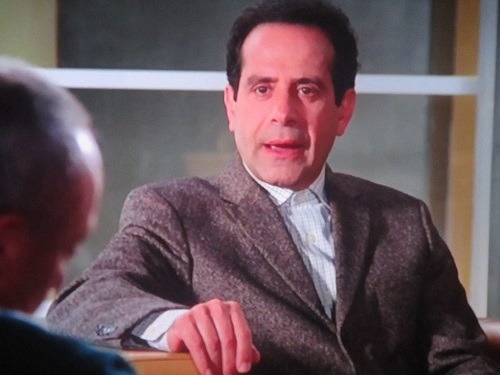


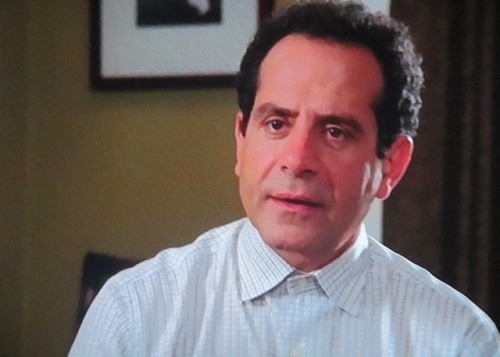

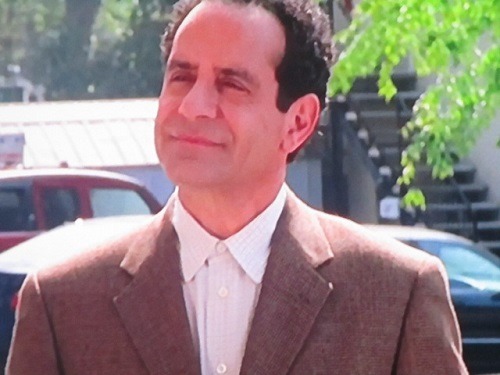
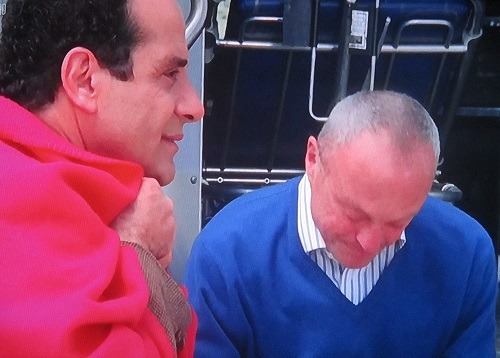
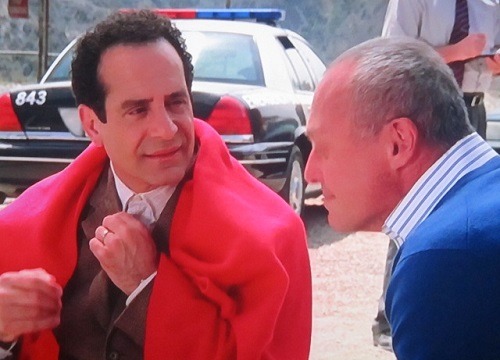
Tony Shalhoub as Adrian Monk 2007 in Monk “Mr. Monk and the Buried Treasure”
https://www.imdb.com/title/tt1004893/
https://monk.fandom.com/wiki/Mr._Monk_and_the_Buried_Treasure
#Monk#Adrian Monk#Tony Shalhoub#Stanley Kamel#Dr. Charles Kroger#Mr. Monk and the Buried Treasure#Star Trek#Star Trek TNG#Galaxy Quest#Galaxy Quest – Planlos durchs Weltall#Tech Sergeant Chen#Mr. Monk auf Schatzsuche#Kosinski#Where No One Has Gone Before#Der Reisende
4 notes
·
View notes
Photo

#monk#adrian monk#usa monk#06x06 mr monk and the buried treasure#mine#ebw.gif#tony shalhoub#he's such a little shit sometimes lmao
66 notes
·
View notes
Photo

Chingle Hall UK
Chingle Hall lies just north of Preston, in the small village of Goosnargh, it is one of Britain's oldest and most haunted buildings (it's the oldest inhabited brick building). The house formerly known as Singleton hall was constructed in 1260 by the knight Adam de Singleton. The Hall remained in the de Singleton's family late into the 16th Century. In 1585 the Wall Family who were related to the Singletons, moved into the Hall.
John Wall was born in the Hall in 1620, he studied at Worcester University. In 1641 he became a priest, during the time of the Catholic Reformation it was illegal to practice mass in Britain, Chingle Hall was used as a place of worship by Catholics and had many priest holes and secret compartments were made for the people taking part the mass to hide if the Hall was raided by the kings soldiers. At this time Father John Wall was most active, conducting secret mass on a regular basis.
In 1678 he was apprehended at Rushock Court near Bromsgrove, as he was tendering the Oath of Supremacy. He was taken to Worcester jail, where he was offered his life if he would foresake his religion, but he declined. Brought back to Worcester, he was drawn and quartered at Redhill on the 22nd of August 1679.
His quartered body was given to his friends, and was buried in St. Oswald's churchyard. Mr. Levison, however, secured the martyr's head, and it was treasured by the friars at Worcester until the dissolution of that house during the French Revolution. It is rumored to be buried the Hall's grounds or hidden in the building itself. The Franciscan nuns at Taunton claim to possess a tooth and a bone of the martyr. He was Canonized by Pope Paul VI in 1970.
In 1764 the house was passed to the Farrington family during these times Chingle hall was a hub for zealous religious activity. Great effort was made to keep alive the Roman catholic traditions, cavities were built into walls and tunnels were dug to some of the surrounding buildings as a method of escape.
Once inside the Great Hall, you see the wooden beams going across the ceiling. Some of these beams have strange symbols on them. No one really knew what these symbols were, until some scientists took samples of the wood. They found that the wood was much older than Chingle Hall, and had a lot of salt in them. The wood had actually come from an old Viking longboat. During the 1950s one of the beams spontaneously caught fire, and, just as quickly as it had started, it inexplicably extinguished itself. The smell of wood burning lingers in many of the rooms.
The Different stories of paranormal activity at this location are huge, as is the number of different spirits that reside here. The most popular ghost at the residence however has to be that of Eleanor Singleton. The smell of lavender coming from her old bedroom has to be the most popular experience, but apparitions have also been witnessed.
As for the different ghosts at the building, of which there are many, the most commonly encountered have been listed below:
1 At least 5 monks
2 A Chimney Sweep
3 4 Female Children
4 2 Male Children
5 Eleanor Singleton
6 A Cavalier
7 A Phantom Candle
8 Various entities that have been unidentified
9 Cat
10 Dog
11 Mrs Howarth
12 The “Dizzy Man”
The amount of activity at the hall in massive. Reports include almost every type of haunting, such as apparitions, physical contact, sudden unexplained nausea, feeling of being watched and of unexplained presence's, smells, footsteps, poltergeist activity and electronic voice phenomena. It cant be denied that the claim to the hall being the most haunted house in England isn't made without good reason.
7 notes
·
View notes
Text
All Saints Church - Corn Street - Bristol

All Saints Church - Corn Street - Bristol One of the most famous hauntings at the church concerns a phantom monk, who was reported dozens of times leading up to his final appearance on Christmas Day 1948. The ghostly figure would be seen strolling purposefully throughout the church, as well as the grounds outside. It is believed that he was guarding something, possibly treasure which he buried at the church during his time on Earth. Just why the monk stopped appearing at All Saints church in unknown. It is, of course, likely that he is still present at the building and is just waiting to be seen again. Strange events have also been reported in the house which sits on the church grounds, although these occurrences seem to be much more sinister than a monk watching over his former possessions. In 1840, the Jones family, who occupied the All Saints church house, began to report unexplainable events such as strange noises and an overwhelming sense of dread and fear. Mr. Jones, who was the man of the house in an extremely conservative period, grew increasingly fearful of an unseen entity and was ultimately left shaking on the floor while tears poured from his eyes. His wife, for her part, reported experiencing something not unlike demonic possession, as she would frequently have to fight the urge to throw herself from an upstairs window. Source- Haunted Rooms Photo - Rare Old Prints Read a newspaper article from 1846 on the link in the comments.
#hauntedbristol #bristolghoststories #hauntedchurches #somersetparanormal #christmasghosts
#hauntedbristol#bristolghoststories#hauntedchurches#somersetparanormal#christmasghosts#paranormal#hauntedhotspots#paranormal activity#ghostsofsomerset#ghosts#somerset#haunted#supernatural#spooky#hauntedsomerset#hauntedchurch
1 note
·
View note
Text
The Significance of Medieval Gold Ring

Mr. Thompson needed to wait for 3 years to have that opportunity to place the medieval gold ring up for auction. During that time has been spent following proper official process for when someone discovered buried treasure and for having the ring valued and identified with the British Museum and the coroner. The coroner confirmed the ring as a treasure that gave the museum, its primary chance to purchase it. When they refused, the ring has been sent back to Mr. Thompson, someone that settled to have auctioned it off.
The type of Loot that Robin Hood will like…
The ring has not been thought to be contemporary with Robin Hood that according to the legend functioned with the gang out of the Sherwood Forest during the 13th century, during the time of this King John. It has not been known who Robin Hood was or even when he was just more of a legend but the actual historical figure.
He differed from the other robbers during that time, with Eustace the Monk and Fulk Fitzwarin, who were actual people and not those legendary. The legends said that Robin Hood takes it from the rich and handed to the poor.

But the thing is, all of those three robbers and some other fugitives had in common was, they used the private forest of the king that reserves for refuge. These forests of Barnsdale and Sherwood, which are rampant with old legends, had been supposed to be the private lands of the king where they might hunt.
The historians thought there can have been two olden figures from whom this Robin Hood legend derives. Other outlaws possibly took this name, which further confused with the historical record.
0 notes
Text
The Trained Memory
New Post has been published on https://selfhelpqa.com/the-trained-memory/
The Trained Memory
THE TRAINED MEMORY
by
Warren Hilton
Chapter I
The Elements of Memory
You have learned of the sense-perceptive and judicial processes by which your mind acquires its knowledge of the outside world. You come now to a study of the phenomenon of memory, the instrument by which your mind retains and makes use of its knowledge, the agency that has power to resurrect the buried past or power to enfold us in a Paradise of dreams more perfect than reality.
In the broadest sense, memory is the faculty of the mind by which we (1) _retain_, (2) _recall_, (3) _picture to the mind’s eye_, and (4) _recognize_ past experiences.
Memory involves, therefore, four elements, _Retention_, _Recall_, _Imagination_ and _Recognition_.
Chapter II
The Mental Treasure Vault and Its Lost Combination
Almost everyone seems to think that we retain in the mind _only_ those things that we can voluntarily recall; that memory, in other words, is limited to the power of voluntary reproduction.
This is a profound error. It is an inexcusable error. The daily papers are constantly reporting cases of the lapse and restoration of memory that contain all the elements of underlying truth on this subject.
It is plain enough that the memory _seems_ decidedly limited in its scope. This is because our power of voluntary recall is decidedly limited.
But it does not follow simply because we are without the power to deliberately recall certain experiences that all mental trace of those experiences is lost to us.
_Those experiences that we are unable to recall are those that we disregarded when they occurred because they possessed no special interest for us. They are there, but no mental associations or connections with power to awaken them have arisen in consciousness._
Things are continually happening all around us that we see with but “half an eye.” They are in the “fringe” of consciousness, and we deliberately ignore them. Many more things come to us in the form of sense-impressions that clamorously assail our sense-organs, but no effort of the will is needed to ignore them. We are absolutely impervious to them and unconscious of them because by the selection of our life interests we have closed the doors against them.
In either case, whether in the “fringe” of consciousness or entirely outside of consciousness, these unperceived sensations will be found to be sensory images that have no connection with the present subject of thought. They therefore attract, and we spare them, no part of our attention.
Just as each of our individual sense-organs selects from the multitude of ether vibrations constantly beating upon the surface of the body only those waves to the velocity of which it is attuned, so each one of us as an integral personality selects from the stream of sensory experiences only those particular objects of attention that are in some way related to the present or habitual trend of thought.
Just consider for a moment the countless number and variety of impressions that assail the eye and ear of the New Yorker who walks down Broadway in a busy hour of the day. Yet to how few of these does he pay the slightest attention. He is in the midst of a cataclysm of sound almost equal to the roar of Niagara and he does not know it.
Observe how many objects are right now in the corner of your mind’s eye as being within the scope of your vision while your entire attention is apparently absorbed in these lines. You see these other things, and you can look back and realize that you have seen them, but you were not aware of them at the time.
Let two individuals of contrary tastes take a day’s outing together. Both may have during the day practically identical sensory images; but each one will come back with an entirely different tale to tell of the day’s adventures.
_All sensory impressions, somehow or other, leave their faint impress on the waxen tablets of the mind. Few are or can be voluntarily recalled._
Just where and how memories are retained is a mystery. There are theories that represent sensory experiences as actual physiological “impressions” on the cells of the brain. They are, however, nothing but theories, and the manner in which the brain, as the organ of the mind, keeps its record of sensory experiences has never been discovered. Microscopic anatomy has never reached the point where it could identify a particular “idea” with any one “cell” or other part of the brain.
For us, the important question is not _how_, but _how much_; _not the manner in which, but the extent to which_, sensory impressions are preserved. Now, all the evidences indicate that _absolutely every impression received upon the sensorium is indelibly recorded in the mind’s substance_. A few instances will serve to illustrate the remarkable power of retention of the human mind.
Sir William Hamilton quotes the following from Coleridge’s “Literaria Biographia”: “A young woman of four- or five-and-twenty, who could neither read nor write, was seized with a nervous fever, during which, according to the asseverations of all the priests and monks of the neighborhood, she became ‘possessed,’ and, as it appeared, by a very learned devil. She continued incessantly talking Latin, Greek and Hebrew in very pompous tones, and with most distinct enunciation. Sheets full of her ravings were taken down from her own mouth, and were found to consist of sentences coherent and intelligible each for itself but with little or no connection with each other. Of the Hebrew, a small portion only could be traced to the Bible; the remainder seemed to be in the Rabbinical dialect.”
The case was investigated by a physician, who learned that the girl had been a waif and had been taken in charge by a Protestant clergyman when she was nine years old and brought up as his servant. This clergyman had for years been in the habit of walking up and down a passage of his house into which the kitchen door opened and at the same time reading to himself in a loud voice from his favorite book. A considerable number of these books were still in the possession of his niece, who told the physician that her uncle had been a very learned man and an accomplished student of Hebrew. Among the books were found a collection of Rabbinical writings, together with several of the Greek and Latin fathers; and the physician succeeded in identifying so many passages in these books with those taken down at the bed-side of the young woman that there could be no doubt as to the true origin of her learned ravings. Now, the striking feature of all this, it will be observed, is the fact that the subject was an illiterate servant-girl to whom the Greek, Latin and Hebrew quotations were _utterly unintelligible,_ that _normally she had no recollection of them, that she had no idea of their meaning_, and finally that they had been impressed upon her mind _without her knowledge_ while she was engaged in her duties in her master’s kitchen.
Several cases are reported by Dr. Abercrombie, and quoted by Professor Hyslop, in which mental impressions long since forgotten beyond the power of voluntary recall have been revived by the shock of accident or disease. “A man,” he says, “mentioned by Mr. Abernethy, had been born in France, but had spent the greater part of his life in England, and, for many years, had entirely lost the habit of speaking French. But when under the care of Mr. Abernethy, on account of the effects of an injury to the head, he always spoke French.”
“A similar case occurred in St. Thomas Hospital, of a man who was in a state of stupor in consequence of an injury to the head. On his partial recovery he spoke a language which nobody in the hospital understood but which was soon ascertained to be Welsh. It was then discovered that he had been thirty years absent from Wales, and, before the accident, had entirely forgotten his native language.
“A lady mentioned by Dr. Pritchard, when in a state of delirium, spoke a language which nobody about her understood, but which was afterward discovered to be Welsh. None of her friends could form any conception of the manner in which she had become acquainted with that language; but, after much inquiry, it was discovered that in her childhood she had a nurse, a native of a district on the coast of Brittany, the dialect of which is closely analogous to Welsh. The lady at that time learned a good deal of this dialect but had entirely forgotten it for many years before this attack of fever.”
Dr. Carpenter relates the following incident in his “Mental Physiology”: “Several years ago, the Rev. S. Mansard, now rector of Bethnal Green, was doing clerical duty for a time at Hurstmonceaux, in Sussex; and while there he one day went over with a party of friends to Pevensey Castle, which he did not remember to have ever previously visited. As he approached the gateway he became conscious of a very vivid impression of having seen it before; and he ‘seemed to himself to see’ not only the gateway itself, but donkeys beneath the arch and people on top of it. His conviction that he must have visited the castle on some former occasion–although he had neither the slightest remembrance of such a visit nor any knowledge of having ever been in the neighborhood previously to his residence at Hurstmonceaux–made him inquire from his mother if she could throw any light on the matter. She at once informed him that being in that part of the country, when he was but _eighteen months old_, she had gone over with a large party and had taken him in the pannier of a donkey; that the elders of the party, having brought lunch with them, had eaten it on the roof of the gateway, where they would have been seen from below, whilst he had been left on the ground with the attendants and donkeys.”
“An Italian gentleman,” says Dr. Rush, of Philadelphia, “who died of yellow fever in New York, in the beginning of his illness spoke English, in the middle of it French, but on the day of his death only Italian.”
Striking as these instances are, they are not unusual. Everyone on reflection can supply similar instances. Who among us has not at one time or another been impressed with a mysterious feeling of having at some time in the past gone through the identical experience which he is living now?
On such occasions the sense of familiarity is sometimes so persistent as to fill one with a strange feeling of the supernatural and to incline our minds to the belief in a reincarnation.
The “flash of inspiration” which, for the lawyer, solves a novel legal issue arising in the trial of a case, or, for the surgeon, sees him successfully through the emergencies of a delicate operation, has its origin in the forgotten learning of past experience and study.
Succeeding books in this _Course_ will bring to light numerous other facts less commonly observed, drawn indeed from the study of abnormal mental states, indicating that we retain a great volume of sense-impressions of whose very recording we are at the time unaware. In other words, all the evidences point to the absolute totality of our retention of all sensory experiences. They indicate that every sense-impression you ever received, whether you actually perceived and were conscious of it or not, has been retained and preserved in your memory, and can be “brought to mind” when you understand the proper method of calling it into service.
A vast wealth of facts is stored in the treasure vaults of your mind, but there are certain inner compartments to which you have lost the combination.
The author of “Thoughts on Business” says: “It is a great day in a man’s life when he truly begins to discover himself. The latent capacities of every man are greater than he realizes, and he may find them if he diligently seeks for them. A man may own a tract of land for many years without knowing its value. He may think of it as merely a pasture. But one day he discovers evidences of coal and finds a rich vein beneath his land. While mining and prospecting for coal he discovers deposits of granite. In boring for water he strikes oil. Later he discovers a vein of copper ore, and after that silver and gold. These things were there all the time–even when he thought of his land merely as a pasture. But they have a value only when they are discovered and utilized.”
“Not every pasture contains deposits of silver and gold, neither oil nor granite, nor even coal. But beneath the surface of every man there must be, in the nature of things, a latent capacity greater than has yet been discovered. And one discovery must lead to another until the man finds the deep wealth of his own possibilities. History is full of the acts of men who discovered somewhat of their own capacity; but history has yet to record the man who fully discovered all that he might have been.”
You who are a bit vain of your visits to other lands, your wide reading, your experience of men and things; you who secretly lament that so little of what you have seen and read remains with you, behold, your “acres of diamonds” are within you, needing but the mystic formula that shall reveal the treasure!
Chapter III
The Mechanism of Recall
Somehow, somewhere, all experiences, whether subject to voluntary recall or not, are preserved, and are capable of reproduction when the right stimulus comes along.
And it is a law that _those experiences which are associated with each other, whether ideas, emotions or voluntary or involuntary muscular movements, tend to become bound together into groups, and these groups tend to become bound together into systems_.
Such a system of associated groups of experiences is technically known as a “complex.”
Pay particular attention to these definitions, as “groups” of ideas and “complexes” of ideas, emotions and muscular movements are terms that we shall constantly employ.
You learned in a former lesson that mental experiences may consist not only of sense-perceptions based on excitements arising in the memory nerves, but also of bodily emotions, the “feeling tones” of ideas, and of muscular movements based on stimuli arising in the motor nerves.
_Groups consist, therefore, not only of associated ideas, but of associated ideas coupled with their emotional qualities and impulses to muscular movements._
All groups bound together by a mutually related idea constitute a single “complex.” Every memory you have is an illustration of such “complexes.”
Suppose, for example, you once gained success in a business deal. Your recollection of the other persons concerned in that transaction, of any one detail in the transaction itself, will be accompanied by the faster heartbeat, the quickened circulation of the blood, the feeling of triumph and elation that attended the original experience.
Complexes formed out of harrowing earthquakes, robberies, murders or other dreadful spectacles, which were originally accompanied on the part of the onlooker by trembling, perspiration and palpitation of the heart, when lived over again in memory, are again accompanied by all these bodily activities. Your memory of a hairbreadth escape will bring to your cheek the pallor that marked it when the incident occurred.
The formation and existence of “complexes” explains the origin of many functional diseases of the body–that is to say, diseases involving no loss or destruction of tissue, but consisting simply in a failure on the part of some bodily organ to perform its allotted function naturally and effectively.
Thus, in hay fever or “rose cold” the tears, the inflammation of the membranes of the nose, the cough, the other trying symptoms, all are linked with the sight of a rose, or dust, or sunlight, or some other outside fact to which attention has been called as the cause of hay fever, into a complex, “an automatically working mechanism.” And the validity of this explanation of the regular recurrence of attacks of this disease is sufficiently demonstrated by the fact that a paper rose is likely to prove just as effective in producing all the symptoms of the disease as a rose out of Nature’s garden.
Another striking illustration of the working of this principle is afforded by two gentlemen of my acquaintance, brothers, each of whom since boyhood has had unfailing attacks of sneezing upon first arising in the morning. No sooner is one of these men awake and seated upon the edge of his bed for dressing than he begins to sneeze, and he continues to sneeze for fifteen or twenty minutes thereafter, although he has no “cold” and never sneezes at any other time.
Obviously, if absolutely all mental experiences are preserved, they consist altogether of two broad classes of complexes: first, those that are momentarily _active in consciousness_, forming part of the present mental picture, and, second, all the others–that is to say, all past experiences that are _not at the present moment before the mind’s eye_.
There are, then, _conscious_ complexes and _subconscious_ complexes, complexes of _consciousness_ and complexes of _subconsciousness_.
And of the complexes of subconsciousness, some are far more readily recalled than others. Some are forever popping into one’s thoughts, while others can be brought to the light of consciousness only by some unusual and deep-probing stimulus. And _the human mind is a vast storehouse of complexes, far the greater part buried in subconsciousness_, yet somehow, like impressions on the wax cylinder of a phonograph, preserved with life-like truth and clearness.
Turn back for a moment to our definition of memory. You will observe that its second essential element is Recall.
Recall is the process by which the experiences of the past are summoned from the reservoir of the subconscious into the light of present consciousness. We necessarily touched upon this process in a previous book, in considering the Laws of Association, but here, in relation to memory, we shall go into the matter somewhat more analytically.
Chapter IV
The Laws of Recall
Law I. The primary law of recall is this: _The recurrence or stimulation of one element in a complex tends to recall all the others._
In our explanation of “complex” formation we necessarily cited instances that illustrate this principle as well, since _recall is merely a reverse operation from that involved in “complex” formation_.
For example, in running through a book I come upon a flower pressed between its pages. At once the memory of the friend who gave it to me springs into consciousness and becomes the subject of reminiscence. This recalls the mountain village where we last met. This recalls the fact that a railroad was at the time under process of construction, which should transform the village into a popular resort. This in turn suggests my coming trip to the seashore, and I am reminded of a business appointment on which my ability to leave town on the appointed day depends. And so on indefinitely.
Far the greater part of your successive states of consciousness, or even of your ordinary “thinking,” commonly so-called, consists of trains of mental pictures “suggested” one by another. If the associated pictures are of the everyday type, common to everyone, you have a prosaic mind; if, on the other hand, the associations are unusual or unique, you are happily possessed of wit and fancy.
These instances of the action of the Law of Recall illustrate but one phase of its activity. They show simply that groups of ideas are so strung together on the string of some common element that _the activity of one “group” in consciousness is apt to be automatically followed by the others. But the law of association goes deeper than this. It enters into the activity of every individual group, and causes all the elements of every group, ideas, emotions and impulses to muscular movements, to be simultaneously manifested._
There is no principle to which we shall more continually refer than this one. Our explanation of hay fever a moment ago illustrates our meaning. Get the principle clearly in your mind, and see how many instances of its operation you can yourself supply from your own daily experience.
So far as the mere linking together of groups of ideas is concerned, this classifying quality is developed in some persons to a greater degree than in others. It finds its extreme exemplar in the type of man who can never relate an incident without reciting all the prolix and minute details and at the same time wandering far from the original subject in pursuit of every suggested idea.
Law II. _Similarity and nearness in time or space between two experiential facts causes the thought of one to tend to recall the thought of the other._
This is the Associative Law of Contiguity considered from the standpoint of recall. The points of contiguity are different for different individuals. Similarities and nearnesses will awaken all sorts of associated groups of ideas in one person that are not at all excitable in the same way in another whose experiences have been different.
Law III. _The greater the frequency and intensity of any given experience, the greater the ease and likelihood of its reproduction and recall._
This explains why certain groups in any complex are more readily recalled than others–why some leap forth unbidden, why some come next and before others, why some arrive but tardily or not at all.
This is how the associative Laws of Habit and Intensity affect the power of recall.
* * * * *
There is no department of business to which the application of these Laws of Recall is so apparent as the department of advertising. The most carefully worded and best-illustrated advertisement may fail to pay its cost unless the underlying principles of choice of position, selection of medium and size of space are understood. The advertisers in metropolitan newspapers and magazines of large circulation are the ones who have most at stake. But whatever the field to be reached, it is well to bear in mind certain facts based on the Laws of Recall that have been established by psychological experiment.
Most advertisers have a general idea that certain relative positions on the newspaper or magazine page are to be preferred over others, but they have no conception of the real differences in relative recall value. When the great cost of space in large publications is considered the financial value of such knowledge is evident.
By a great number of tests the relative recall value of every part of the newspaper page has been approximately determined. It has been found, for example, that a given space at the upper right-hand corner of the page has more than twice the value of the same amount of space in the lower left-hand corner.
Many advertisers adopt the policy of repeating full-page advertisements at long intervals instead of advertising in a small way continually. Laboratory tests have shown, on the contrary, that a quarter-page advertisement appearing in four successive issues of a newspaper is fifty per cent more effective than a full-page advertisement appearing only once. It does not follow, however, that an eighth-page advertisement repeated eight times is correspondingly more effective; for below a certain relative size the value of an advertisement decreases much more rapidly than the cost. There are, of course, modifying conditions, such as special sales of department stores, where occasional displays and announcements make it desirable to use either full pages, or even double pages, but the great bulk of advertising is not of this character.
Every year in the United States alone six hundred millions of dollars are expended in advertising the sale of commodities, and for the most part expended in a haphazard, experimental and unscientific way. The investment of this vast sum with risk of perhaps total loss, or even possible injury, through the faulty construction or improper placing of advertisements should stimulate the interest of every advertiser in the work that psychologists have done and are doing toward the accumulation of a body of exact knowledge on this subject.
Chapter V
The Science of Forgetting
Attention is the instrumentality through which the Laws of Recall operate. Wittingly or unwittingly, consciously or unconsciously, every man’s attention swings in automatic obedience to the Laws of Recall.
Attention is the artisan that, bit by bit, and with lightning quickness, constructs the mosaic of consciousness.
Having the whole vast store of all present and past experiences to draw upon, he selects only those groups and those isolated instances that are related to our general interests and aims. He disregards others.
The attention operates in a manner complementary to the general Laws of Recall. It is an active principle not of association, but of _dissociation_.
You choose, for example, a certain aim in life. You decide to become the inventor of an aeroplane of automatic stability. This choice henceforth determines two things. First, it determines just which of the sensory experiences of any given moment are most likely to be selected for your conscious perception. Secondly, it determines just which of your past experiences will be most likely to be recalled.
Such a choice, in other words, determines to some extent the sort of elements that will most probably be selected to make up at any moment the contents of your consciousness.
From the instant that you make such a choice you are on the alert for facts relevant to the subject of your ambition. Upon them you concentrate your attention. They are presented to your consciousness with greater precision and clearness than other facts. All facts that pertain to the art of flying henceforth cluster and cling to your conscious memory like iron filings to a magnet. All that are impertinent to this main pursuit are dissociated from these intensely active complexes, and in time fade into subconscious forgetfulness.
By subconscious forgetfulness we mean a _compartment_, as it were, of that reservoir in which all past experiences are stored.
_Consciousness is a momentary thing._ It is a passing state. It is ephemeral and flitting. It is made up _in part of present sense-impressions_ and in part of past experiences. These past experiences are brought forth from subconsciousness. Some are voluntarily brought forth. Some present themselves without our conscious volition, but by the operation of the laws of association and dissociation. Some we seem unable voluntarily to recall, yet they may appear when least we are expecting them. It is these last to which we have referred as lost in subconscious forgetfulness. As a matter of fact, _none_ are ever actually _lost_.
All the wealth of your past experience is still yours–a concrete part of your personality. All that is required to make it available for your present use is a sufficient concentration of your attention, _a concentration of attention that shall dwell persistently and exclusively upon those associations that bear upon the fact desired_.
The tendency of the mind toward dissociation, a function limiting the indiscriminate recall of associated “groups,” is also manifested in all of us in the transfer to unconsciousness of many _muscular activities_.
As infants we learn to walk only by giving to every movement of the limbs the most deliberate conscious attention. Yet, in time, the complicated co-operation of muscular movements involved in walking becomes involuntary and unconscious, so that we are no longer even aware of them.
It is the same with reading, writing, playing upon musical instruments, the manipulation of all sorts of mechanical devices, the thousand and one other muscular activities that become what we call _habitual_.
The moment one tries to make these habitual activities again dependent on the conscious will he encounters difficulties.
“The centipede was happy quite, Until the toad, for fun, Said, ‘Pray which leg goes after which?’ This stirred his mind to such a pitch, He lay distracted in a ditch, Considering _how_ to run.”
_All these habitual activities are started as acts of painstaking care and conscious attention. All ultimately become unconscious._ They may, however, be started or stopped at will. They are, therefore, still related to the conscious mind. They occupy a semi-automatic middle ground between conscious and subconscious activities.
Chapter VI
The Fallacy of Most Memory Systems
It is evident that if what we have been describing as the process of recall is true, then the commonly accepted idea that _practice_ in memorizing makes memorizing _easier_ is false, and that there is no truth in the popular figure of speech that likens the memory to a muscle that grows stronger with use.
So far as the memory is concerned, however, practice may result in a more or less unconscious improvement in the _methods_ of memorizing.
_By practice we come to unconsciously discover and employ new associative methods in our recording of facts, making them easier to recall, but we can certainly add nothing to the actual scope and power of retention._
Yet many books on memory-training have wide circulation whose authors, showing no conception of the processes involved, seek to develop the general ability to remember by incessant practice in memorizing particular facts, just as one would develop a muscle by exercise.
The following is quoted from a well-known work of this character:
“I am now treating a case of loss of memory in a person advanced in years, who did not know that his memory had failed most remarkably until I told him of it. He is making vigorous efforts to bring it back again, and with partial success. The method pursued is to spend two hours daily, one in the morning and one in the evening, in exercising this faculty. The patient is instructed to give the closest attention to all that he learns, so that it shall be impressed on his mind clearly. He is asked to recall every evening all the facts and experiences of the day, and again the next morning. Every name heard is written down and impressed on his mind clearly and an effort made to recall it at intervals. Ten names from among public men are ordered to be committed to memory every week. A verse of poetry is to be learned, also a verse from the Bible, daily. He is asked to remember the number of the page of any book where any interesting fact is recorded. These and _other_ methods are slowly resuscitating a failing memory.”
As remarked by Professor James, “It is hard to believe that the memory of the poor old gentleman is a bit the better for all this torture except in respect to the particular facts thus wrought into it, the occurrences attended to and repeated on those days, the names of those politicians, those Bible verses, etc., etc.”
The error in the book first quoted from lies in the fact that its author looks upon a failing memory as indicating a loss of retentiveness. The _real_ cause is the loss of an intensity of interest. _It is the failure to form sufficiently large groups and complexes of related ideas, emotions and muscular movements associated with the particular fact to be remembered. There is no reason to believe that the retention of sensory experiences is not at all times perfectly mechanical and mechanically perfect._
Interest is a mental yearning. It is the offspring of desire and the mother of memory.
It goes out spontaneously to anything that can add to the sum of one’s knowledge about the thing desired.
A manufactured interest is counterfeit. When a thing is done because it has to be done, desire dies and “duty” is born. In proportion as a subject is associated with “duty,” it is divorced from interest.
If you want to impress anything on another man’s mind so that he will remember it, harness it up with the lure of a desire.
Diffused interest is the cause of all unprofitable forgetfulness. Do not allow your attention to grope vaguely among a number of things. Whatever you do, make a business of doing it with your whole soul. Turn the spotlight of your mind upon it, and you will not forget it.
Chapter VII
A Scientific Memory System for Business Success
We recall things by their associates. _When you set your mind to remember any particular fact, your conscious effort should be not vaguely to will that it shall be impressed and retained, but analytically and deliberately to connect it with one or more other facts already in your mind._
The student who “crams” for an examination makes no permanent addition to his knowledge. There can be no recall without association, and “cramming” allows no time to form associations.
If you find it difficult to remember a fact or a name, do not waste your energies in “willing” it to return. Try to recall some other fact or name associated with the first in time or place or otherwise, and lo! when you least expect it, it will pop into your thoughts.
If your memory is good in most respects, but poor in a particular line, it is because you do not interest yourself in that line, and therefore have no material for association. Blind Tom’s memory was a blank on most subjects, but he was a walking encyclopedia on music.
_To improve your memory you must increase the number and variety of your mental associations._
Many ingenious methods, scientifically correct, have been devised to aid in the remembering of particular facts. These methods are based wholly on the principle that _that is most easily recalled which is associated in our minds with the most complex and elaborate groupings of related ideas_.
Thus, Pick, in “Memory and Its Doctors,” among other devices, presents a well-known “figure-alphabet” as of aid in remembering numbers. Each figure of the Arabic notation is represented by one or more letters, and the number to be recalled is translated into such letters as can best be arranged into a catch word or phrase. To quote: “The most common figure-alphabet is this:
1 2 3 4 5 6 7 8 9 0 t n m r l sh g f b s d j k v p o ch c g qu z
“To briefly show its use, suppose it is desired to fix 1,142 feet in a second as the velocity of sound, t, t, r, n, are the letters and order required. Fill up with vowels forming a phrase like ‘tight run’ and connect it by some such flight of the imagination as that if a man tried to keep up with the velocity of sound, he would have a ‘tight run.'”
The same principle is at the basis of all efficient pedagogy. The competent teacher endeavors by some association of ideas to link every new fact with those facts which the pupil already has acquired.
In the pursuit of this method the teacher will “compare all that is far off and foreign to something that is near home, making the unknown plain by the example of the known, and connecting all the instruction with the personal experience of the pupil–if the teacher is to explain the distance of the sun from the earth, let him ask, ‘If anyone there in the sun fired off a cannon straight at you, what should you do?’ ‘Get out of the way,’ would be the answer. ‘No need of that,’ the teacher might reply; ‘you may quietly go to sleep in your room and get up again; you may wait till your confirmation day, you may learn a trade, and grow as old as I am–_then only_ will the cannon-ball be getting near, _then_ you may jump to one side! See, so great as that is the sun’s distance!'”
We shall now show you how to apply this principle in improving your memory and in making a more complete use of your really vast store of knowledge.
Rule I. _Make systematic use of your sense-organs._
Do you find it difficult to remember names? It is because you do not link them in your mind with enough associations. Every time a man is introduced to you, look about you. Who is present? Take note of as many and as great a variety of surrounding facts and circumstances as possible. Think of the man’s name, and take another look at his face, his dress, his physique. Think of his name, and at the same time his voice and manner. Think of his name, and mark the place where you are now for the first time meeting him. Think of his name in conjunction with the name and personality of the friend who presented him.
Memory is not a distinct faculty of mind in the sense that one man is generously endowed in that respect while another is deficient. Memory, as meaning the power of voluntary recall, is wholly a question of trained habits of mental operation. Your memory is just as good as mine or any other man’s. It is your indifference to what you would call “irrelevant facts” that is at fault. Therefore, cultivate habits of observation. Fortify the observed facts you wish to recall with a multitude of outside associations. Never rest with a mere halfway knowledge of things.
To assist you in training yourself in those habits of observation that make a good memory of outside facts, we append the following exercises:
_a._ Walk slowly through a room with which you are not familiar. Then make a list of all the contents of the room you can recall. Do this every day for a week, using a different room each time. Do it not half-heartedly, but as if your life depended on your ability to remember. At the end of the week you will be surprised at the improvement you have made.
_b._ As you walk along the street, observe all that occurs in a space of one block, things heard as well as things seen. Two hours later make a list of all you can recall. Do this twice a day for ten days. Then compare results.
_c._ Make a practice of recounting each night the incidents of the day. The prospect of having this to do will cause you unconsciously to observe more attentively.
This is the method by which Thurlow Weed acquired his phenomenal memory. As a young man with political ambitions he had been much troubled by his inability to recall names and faces. So he began the practice each night of telling his wife the most minute details of incidents that had occurred during the day. He kept this up for fifty years, and it so trained his powers of observation that he became as well known for his unfailing memory as for his political adroitness.
_d._ Glance once at an outline map of some State. Put it out of sight and draw one as nearly like it as you can. Then compare it with the original. Do this frequently.
_e._ Have some one read you a sentence out of a book and you then repeat it. Do this daily, gradually increasing the length of the quotation from short sentences to whole paragraphs. Try to find out what is the extreme limit of your ability in this respect compared with that of other members of your family.
Rule II. _Fix ideas by their associates._
There are other things to be remembered besides facts of outside observation. You are not one whose life is passed entirely in a physical world. You live also within. Your mind is unceasingly at work with the materials of the past painting the pictures of the future. You are called upon to scheme, to plan, to devise, to invent, to compose and to foresee.
If all this mental work is not wasted energy, you must be able to recall its conclusions when occasion requires. A happy thought comes to you–will you remember it tomorrow when the hour for action arrives? There is but one way to be sure, and that is by making a study of the whole associative mental process.
Review the train of ideas by which you reached your conclusion. Carry the thought on in mind to its legitimate conclusion. See yourself acting upon it. Mark its relations to other persons. Note all the details of the mental picture. In other words, to remember thoughts, cultivate thought-observation just as you cultivate sense-observation to remember outside matters.
To train yourself in thought-memory, use the following exercises:
_a._ Every morning at eight o’clock, sharp on the minute, fix upon a certain idea and determine to recall it at a certain hour during the day. Put your whole will into this resolution. Try to imagine what activities you will be engaged in at the appointed hour, and think of the chosen idea as identified with those activities. Associate it in your mind with some object that will be at hand when the set time comes. Having thus fixed the idea in your mind, forget it. Do not refer to it in your thoughts. With practice you will find yourself automatically carrying out your own orders. Persist in this exercise for at least three months.
_b._ Every night when you retire fix upon the hour at which you wish to get up in the morning. In connection with your waking at that hour, think of all the sounds that will be apt to be occurring at that particular time. Bar every other thought from your consciousness and fall asleep with the intense determination to arise at the time set. By all means, get up instantly when you awaken. Keep up this exercise and you will soon be able to awaken at any hour you may wish.
_c._ Every morning outline the general plan of your activities for the day. Select only the important things. Do not bother with the details. Determine upon the logical order for your day’s work. Think not so much of _how_ you are to do things as of the _things_ you are to do. Keep your mind on results. And having made your plan, stick to it. Be your own boss. Let nothing tempt you from your set purpose. Make this daily planning a habit and hold to it through life. It will give you a great lift toward whatever prize you seek. Rule III. _Search systematically and persistently._
When once you have started upon an effort at recollection, persevere. The date or face or event that you wish to recall _is bound up with a multitude of other facts of observation and of your mind life_ of the past. Success in recalling it depends simply upon your ability _to hit upon some idea so indissolubly associated with the object of search that the recall of one automatically recalls the other_. Consequently the thing to do is to hold your attention to one definite line of thought until you have exhausted its possibilities. You must pass in review all the associated matters and suppress or ignore them until the right one comes to mind. This may be a short-cut process or a roundabout process, but it will bring results nine times out of ten, and if habitually persisted in will greatly improve your power of voluntary recall.
Rule IV. _The instant you recollect a thing to be done, do it._
Every idea that memory thrusts into your consciousness carries with it the impulse to act upon it. If you fail to do so, the matter may not again occur to you, or when it does it may be too late.
_Your mental mechanism will serve you faithfully only as long as you act upon its suggestions._
This is as true of bodily habits as of business affairs. The time to act upon an important matter that just now comes to mind is not “tomorrow” or a “little later,” but _NOW_.
What you do from moment to moment tells the story of your career. Ideas that come to you should be compared as to their relative importance. But do this honestly. Do not be swayed by distracting impulses that inadvertently slip in. And having gauged their importance give free rein at once to the impulse to do everything that should not make way for something more important.
If, for any reason, action must be deferred, fix the matter in your mind to be called up at the proper time. Drive all other thoughts from your consciousness. Give your whole attention to this one matter. Determine the exact moment at which you wish it to be recalled. Then put your whole self into the determination to remember it at precisely the right moment. And finally, and perhaps most important of all,–
Rule V. _Have some sign or token._ This memory signal may be anything you choose, but it must somehow be directly connected with the hour at which the main event is to be recalled.
Make a business of observing the memory signs or tokens you have been habitually using. Practice tagging those matters you wish to recall with the labels that form a part of your mental machinery.
Make it a habit to do things when they ought to be done and in the order in which you ought to do them. Habits like this are “paths” along which the mind “moves,” paths of least resistance to those qualities of promptness, energy, persistence, accuracy, self-control, and so on, that create success.
Success in business, success in life, can come only through the formation of right habits. A right habit can be deliberately acquired only by _doing a thing consciously until it comes to be done unconsciously and automatically_.
Every man, consciously or unconsciously, forms his own memory habits, good or bad. Form your memory habits consciously according to the laws of the mind, and in good time they will act unconsciously and with masterful precision.
“‘Amid the shadows of the pyramids,’ Bonaparte said to his soldiers, ‘twenty centuries look down upon you,’ and animated them to action and victory. But all the centuries,” says W.H. Grove, “and the eternities, and God, and the universe, look down upon us–and demand the highest culture of body, mind and spirit.”
A good memory is yours for the making. But _you_ must make it. We can point the way. _You_ must act.
The laws of Association and Recall are the combination that will unlock the treasure-vaults of memory. Apply these laws, and the riches of experience will be available to you in every need.
* * * * *
The purpose of this book has been to make clear certain mental principles and processes, namely, those of Retention, Association and Recall. Incidentally, as with every book in this _Course_, it contains some facts and instructions of immediate practical utility. But primarily it is intended only to help prepare your mind to understand a scientific system for success-achievement that will be unfolded in subsequent volumes.
0 notes
Text
New Release Roundup, 19 January 2019: Fantasy and Adventure
This week’s roundup of the newest releases in fantasy and adventure features a raygun past that should have been, a privateer out to rescue his fiancee, monstergirl madness, and the escape of a rogue superhero.
Accidental Assassin (Sellswords #2) – T. L. Branson
A light shines in the darkness.
The earnings from their last heist have dried up. Now, Ocken and Riley are once again in need of a job.
Ocken doesn’t dare work for the mysterious Viper again, but Riley wants to use the stranger to take down the crime lord, Edward Ziken. Except Viper is nowhere to be found.
But Viper isn’t the only one looking for hired hands. Soon, Ocken and Riley find themselves as pawns in yet another plot for power.
The job seems simple enough, but there’s more at stake than they could possibly know.
Bert Henderson Double Adventure – Spencer Hart
DEATH RAYS & DAMES are all in a day’s work for company troubleshooter Bert Henderson.
Bert’s boss runs Phillips’ Atomics, builder of atomic-powered planes, spaceships, and industrial tools. These high-tech inventions are revolutionizing the world of 1949. So when Mr. Phillips’ interests are threatened, Bert can find himself traveling anywhere on Earth – or beyond.
Criminals and foreign agents are in for more than they bargained for, when Henderson is on the case.
And if there’s a gorgeous dame involved along the way, that can bring its own sort of trouble…”
Contains Bert Henderson’s first and second adventures:
DEATH ON THE MOON: The first ever murder on the Moon brings Bert to Roosevelt Base to find the killer. Mr. Phillips is financing an observatory on the Moon, and construction is halted while the murderer is loose. Can Bert find the killer and prevent more death on the Moon?
FIRE IN THE ANDES: One of Mr. Phillips top engineers has gone missing in Argentina, and Bert is sent to find him. But the investigation leads to the discovery of a greater threat. Complications ensue from encountering a lovely senorita. Can Bert deal with both the case and the dame?
Breaker (Monster Tamer #1) – Isaac Hooke
Three women.
One man.
A whole lot of monsters.
Malem is a Breaker. He breaks the minds of beasts, exerting the steel vise of his will over their own, bending them to his wishes.
His ability is severely limited in terms of the types of creatures he can control, and how many. Most monsters have always been beyond him.
And then one day he accidentally breaks a monster girl. Doors begin to open for him faster than he thought possible…
Also available: Conqueror
Heroes Fall (Heroes Unleashed: Serenity City #1) – Morgon Newquist
He wanted to be a good man. Instead he became a hero.
Twenty years ago, Serenity City’s great Triumvirate of heroes – Achilles, the Banshee, and Pendragon – maintained a golden age of peace and prosperity. Then, in an instant, it all went wrong. The city’s mightiest champion, Achilles, lost his mind during a showdown with the enigmatic supervillain Thanatos and went on a rampage across the city, leaving the Banshee dead and a swath of destruction in his wake before Pendragon could stop him.
Today, as Achilles rots in solitary confinement, Victoria Westerdale investigates a new mystery. Why are young and forgotten heroes disappearing off the streets? Why doesn’t anybody else care? And how is it tied in to those infamous events that brought the city’s greatest heroes to ruin?
And what’s going to happen to them all after Achilles escapes?
Infinite Dendrogram #8 – Sakon Kaidou
In the year 2043, Infinite Dendrogram, the world’s first successful full-dive VRMMO was released. In addition to its ability to perfectly simulate the five senses, along with its many other amazing features, the game promised to offer players a world full of infinite possibilities
Having maxed out his Paladin rank, Ray considers what job to take and level next. As he does so, he hears of a job that was newly excavated alongside an ancient ruin in Altar’s Quartierlatin County — an area bordering the Dryfe Imperium.
As it happens, Ray already meets the conditions for the job, and it suits him well, so he wastes no time going out to make the switch. But of course things are never quite so simple…
Along the way, he encounters Azurite — a mysterious masked swordswoman. There was simply no way Ray could’ve known the far-reaching political implications of his venture to the ruins…
The Starry Sky Chessboard (Starchild Escapes Arranged Marriage #6) – Fat Bread
The vast sky contains thousands of God’s domains.
Yun Xi was born in the Sword Domain, more specifically, the White Lotus Sword Domain. He has a female childhood friend who tends to become jealous very easily, while running an ordinary bakery for a living. At the age of eighteen, he was to marry his arranged bride, with the wish of living his days normally and peacefully.
But on his sixteenth birthday, the shined down on him with three different choices for him to make. These three choices came in the form of three fairies which suddenly appeared in front of him. The boy then learned a terrible truth, that his life was at stake. A bad ending, which was supposed to happen to him, was coming soon.
In order to survive, the youth had to set foot on the battlefields of many deaths trails, all while learning how to love as well as struggling to become stronger.
The Steel Hounds (The Artar Chronicles #1) – Vladimir Vasilenko
Stan, also known as Mongoose, is an extreme traceur and a freerunner, whose real-life talents attracted the attention of The Steel Hounds, the most notorious and private clan of the virtual world of Artar, famous for serving the grey cardinal. While the political landscape for this new world is yet to form, intrigues, conspiracy, daring raids, and sabotage are the main weapons of the Hounds, and his evaluation has just begun.
To complete it successfully and become a full-fledged member of the clan, Stan will have to adapt to working side-by-side with the most unique people with shady backgrounds — even if he is not a team player by nature and has already failed at the very beginning by choosing the least suitable class for teamwork: Battle Monk.
Stan is rebellious, free-spirited, and daring. He risks his life every day just to avoid getting bored of the daily grind. Normally, an expelled student has no hope of entering the virtual world of Artar, an expensive online VR project, but when a suspicious organization offers to pay all expenses to let Stan in for a special purpose, Mongoose gets his chance to become one of the select few. However, to successfully complete his trial, Stan will have to face his main enemy — himself, while finding peace and mastering all five styles of the Battle Monks of Artar.
Voyage of the Lanternfish – C. S. Boyack
An honorable man is mistaken for his disreputable father. Now he’s pushed into a political scheme to start a war that will spread across multiple kingdoms. James Cuttler’s fiancé is being held captive to ensure he goes through with the plan.
He soon decides his skills are at sea and procures a ship to wage war upon those who disrupted his simple life. He can’t do it alone, so he recruits a band of cutthroats to help him. But first, they need guns and munitions to outfit the ship properly. Deception and trickery will only get them so far. Eventually, they’re going to have to engage the enemy.
James’ goals aren’t necessarily the same as his crew. It’s a delicate balancing act to collect enough loot to keep his crew happy, while guiding them back to rescue the girl.
Warhammer Chronicles: Warriors of the Chaos Wastes – C. L. Werner
Many horrors stalk the blasted wastes at the top of the world. Mortals and daemons alike wage war – and in this volume are three tales of such monstrous, god-touched warriors.
The Chaos Wastes are an unspeakable region of magic and madness. In this hellish tundra, the Dark Gods wrestle for supremacy and champions war in their name. Death comes for any who traverse these plains in swift and savage form. Yet there are those who dare brave the wastelands, burdened by their own dark purposes. Wulfrik the Wanderer, cursed by the Ruinous Powers, seeks a prize to appease the forces of Chaos; the Skulltaker, champion of Khorne, hungers for fresh blood; and the last warrior of a Norse tribe sets out to steal the treasure of a god. But in this monstrous arena, there are no winners. Dark forces plot, daemons feed, and even the landscape itself takes sides. This omnibus contains three novels by one of Black Library’s popular authors.
READ IT BECAUSE: These three classic novels exploring the nature of Chaos are from the master of dark fantasy, C L Werner – if you’ve not experienced them, you owe it to yourself.
Will of Fire (Buried Goddess Saga #3) – Rhett C. Bruno and Jaime Castle
A Kingdom held hostage. A thief lost in time. The battle to seal Elsewhere has begun.
The villainous Drad Redstar has won the favor of king and country after leading a decisive victory over the rebels at Winde Port. Now with a seat on the royal council, he condemns Torsten to a lifetime in the dungeon and invites his militant people to take up residence in the capital. But not all light has been squelched. There is one disgraced King’s Shieldsman left who remains loyal to Torsten, and only he can help free the Glass Kingdom from Redstar and his dark desires to revive the Buried Goddess.
Across the known world, Sora deals with the loss of her one and only friend. She seeks out a Mystic of the Panping; someone who can help her figure out what really happened to Whitney in a journey that illuminates her past and present. With the true nature of magic revealed to her, she finds that Whitney is lost in Elsewhere, the world between worlds, and she’ll stop at nothing to bring him back.
As magic and war collide in Will of Fire, the third installment in the Buried Goddess Saga, the fate of the entire world will change.
New Release Roundup, 19 January 2019: Fantasy and Adventure published first on https://medium.com/@ReloadedPCGames
0 notes
Text
Spooky happenings in London 👻
We have reached the end of another unit. As per tradition I am sealing off the London bit of blog posts with a finale of haunted places in London. Now the last list from Vienna only had 5 places but London had tons of articles about haunted places so this one is a lot longer. I apologize for the lengthy read but let’s be honest, who doesn’t love a good ghost story.
Continue reading if you dare 😱😱
1. Tower of London
Starting off with a location that we’ve talked about! The Tower of London. With such an old location it’s no surprise that there’s a few ghosties running about. Here "off with her head" wasn't just a saying, it was reality. In 1536, Queen Anne Boleyn was arrested and beheaded at the Tower Green. Other royal ghosts lurk in the castle, too. Arbella Stuart, cousin of King James I, was allegedly murdered here. In Bloody Tower two young princes, Edward V and Richard, were believed to be murdered by the Duke of Gloucester. These young boys’ voices and screams are heard throughout the tower.

2. Theatre Royal
London’s renowned Theatre Royal has had it’s fair share of haunted sightings over the years. According to both actors and staff members, the ghost of Joseph Grimaldi can be seen on the premises. This man is the inventor of the modern clown and called the “Man in Grey.” He was allegedly stabbed in the Theatre Royal and his bones were discovered in a side passage in 1848. Now I know that this sounds pretty grisly but the theatre isn’t all that spooky in real life. The appearance of one of the ghost is actually a sign of good luck for performances.

3. Covent Garden
We’ve talked about Covent Garden briefly in class so I thought that this would be a nice ad-in. This London Underground stop brings you to an awesome shopping area and one of London’s best theatre districts. But we aren’t talking about shopping, are we? Nah we’re talking about ghosts. The ghost that haunts this station is named William Terriss and he has been seen walking the platforms wearing a gray suit. Bizarre noises are also heard when no travelers are around.

4. Old Bailey
The Central Criminal Court, otherwise known as the Old Bailey, has a disturbing past. The court sits on the former site of Newgate Prison. Along with the building itself, ghosts seem to wander the area surrounding the Old Bailey. If you’re looking for a ghost-filled pub, sit down for a drink at the Viaduct Tavern on Newgate Street. One ghost, Fred, apparently pours out guests’ drinks and flickers the lights at this spooky pub so be aware of Fred 👀

5. Westminster Abbey
Westminster Abbey is an inevitably haunted destination, considering that it houses more than 3,000 buried bodies. The most common ghostie that haunts Westminster Abbey is Father Benedictus, a former Benedictine monk of the abbey. In 1900, a woman reported a vivid sighting of him. In this sighting after about 25 seconds, Father Benedictus vanished into the walls of the church. In 1932, two visitors reported talking to him. Too bad this hasn’t happened in today’s day and age so we could get it on video. If you did want to try and see Father he’s typically appearing between 5 and 6 p.m.

6. St. Paul’s Cathedral
Another place that we have talked about in class! So spooky! Alright so St. Paul’s Cathedral is definitely an eerie place to visit. Its most well-known ghost is a whistling clergyman, who haunts the west end of the chapel. In Ghosts of London, author Elliott O’Donnell recalls meeting an American couple who witnessed a black cloud suddenly appearing in the chapel. Now if we go here and I see a black cloud I’m out. Gone. Never to return as that demon spirit black cloud is not coming near me.
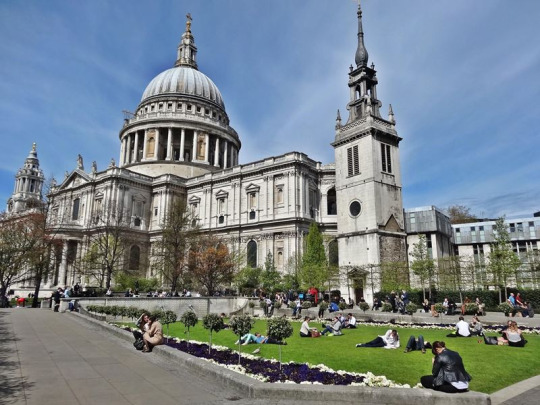
7. Highgate Cemetery
This creepy cemetery opened in 1839 and was the go-to burial spot for Victorian socialites. But by the 1960s, it fell into a state of disrepair and decay leaving a spooky old cemetery. On Swain’s Lane, a street that cuts through the cemetery, several paranormal incidents have been reported. Some Londoners even claim to have seen a vampire lurking in the darkness. Vampire hunt anyone?

8. 50 Berkeley Square, Mayfair
This brick house was dubbed as London's most haunted house in the twentieth century both because of its deranged ex-tenant and resident female ghost. Both stories are fascinating and haunting, in all senses. The young woman allegedly threw herself from the top floor after being abused by her uncle and sometimes appears as a brown mist. Long standing tenant Mr. Myers locked himself in this house until he passed away and is also believed to haunt the premises. Apparently Myers went mad after he was rejected by his fiancée and let the house crumble around him. He died in 1874. On top of all that it's said a maid who slept one night in the attic room was found the next day so deeply distressed that she died the next day in an asylum.

9. The Parkland Walk Spriggan
If you went through my past blog posts I have mentioned this treasure before. Abandoned railway lines don’t get creepier than this – the Parkland Walk, which runs between Finsbury Park and Alexandra Palace. It is lush with vivid greenery but there is still something unsettling about wandering along the overgrown cutting. The part that passes Crouch End is the spookiest stretch of the route, where a looming ‘spriggan’ spirit watches from an unused railway arch, ready to startle unsuspecting passers-by.

10. The Greenwich Foot Tunnel
This tunnel, opened in 1902, runs under the river Thames and connects Greenwich to the the Isle of Dogs. Walking down its damp and narrow path will already leave you feeling uneasy, even without the ghosts of a Victorian man and woman strolling over from the other side. While no one knows exactly who this couple are, they’re spotted frequently late at night although I don’t know who would want to walk down a creepy tunnel so late. Supposedly, their footsteps can be heard bouncing down the leaking walls of the tunnel. Noooooo thank you I’ll take a cab.

11. Old Operating Theatre Museum
It sort of goes without saying this place is probably haunted as it was an actual surgical practice back when surgery wasn’t such an easy-going process. Surgical anesthetic wasn’t invented until 1846, and this place definitely predates that. Most patients died despite the best intentions of the surgeons. It’s the oldest surviving surgical theatre in Europe, and of course is no longer in use.
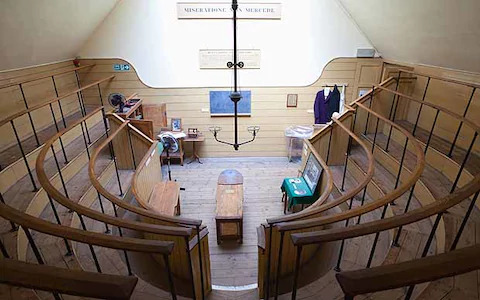
If you made it this far, how bothered are you by the count of 11 instead of a nice, even 10?
Sources:
https://www.travelchannel.com/interests/haunted/photos/haunted-london-1 https://www.timeout.com/london/things-to-do/haunted-places-in-london https://www.standard.co.uk/go/london/attractions/ten-of-the-most-haunted-places-in-london-a3806806.html
0 notes
Text
Ten Interesting Greece Novels:
1). “ When the Tree Sings” by Stratis Haviaras : The cover of this book is deceptively pastoral, because a world of casual brutality as well as timeless beauty awaits within its pages. Set in a Greek village during the Second World War, firmly under Nazi occupation, the story is seen & recalled through the memories of a boy, well aware of cruelty & injustice, yet also aware of the golden haze of tradition & imagination. It's written in remarkable prose, which utilizes bold, even harsh strokes of sunlight & shadow, while maintaining a gorgeous lyricism. The senses are all engaged in palpable detail & immediacy, so that the reader is there in the midst of all that happens. At times this is almost unbearable; but such is the author's skill that we continue reading anyway. (Source: Amazon)
2). “ Eleni” by Nicholas Gage : In 1948, as civil war ravaged Greece, children were abducted and sent to communist "camps" inside the Iron Curtain. Eleni Gatzoyiannis, forty-one, defied the traditions of her small village and the terror of the communist insurgents to arrange for the escape of her three daughters and her son, Nicola. For that act, she was imprisoned, tortured, and executed in cold blood. Nicholas Gage joined his father in Massachusetts at the age of nine and grew up to become a top New York Times investigative reporter, honing his skills with one thought in mind: to return to Greece and uncover the one story he cared about most: the story of his mother. Eleni takes you into the heart a village destroyed in the name of ideals and into the soul of a truly heroic woman. “(Source: Amazon)”
3). “ Zorba the Greek” by Nikos Kazantzakis, Νίκος Καζαντζάκης: The classic novel, international sensation, and inspiration for the film starring Anthony Quinn explores the struggle between the aesthetic and the rational, the inner life and the life of the mind. The classic novel Zorba the Greek is the story of two men, their incredible friendship, and the importance of living life to the fullest. Zorba, a Greek working man, is a larger-than-life character, energetic and unpredictable. He accompanies the unnamed narrator to Crete to work in the narrator’s lignite mine, and the pair develops a singular relationship. The two men couldn’t be further apart: The narrator is cerebral, modest, and reserved; Zorba is unfettered, spirited, and beyond the reins of civility. Over the course of their journey, he becomes the narrator’s greatest friend and inspiration and helps him to appreciate the joy of living. Zorba has been acclaimed as one of the most remarkable figures in literature; he is a character in the great tradition of Sinbad the Sailor, Falstaff, and Sancho Panza. He responds to all that life offers him with passion, whether he’s supervising laborers at a mine, confronting mad monks in a mountain monastery, embellishing the tales of his past adventures, or making love. Zorba the Greek explores the beauty and pain of existence, inviting readers to reevaluate the most important aspects of their lives and live to the fullest. (Source: Good Reads)
4). “ The Odyssey” by by Homer, Robert Fagles (Translator), E.V. Rieu, Frédéric Mugler(Translator), Bernard Knox (Introduction): Literature's grandest evocation of life's journey, at once an ageless human story and an individual test of moral endurance, Homer's ancient Greek epic The Odyssey is translated by Robert Fagles with an introduction and notes by Bernard Knox in Penguin Classics. When Robert Fagles' translation of The Iliad was published in 1990, critics and scholars alike hailed it as a masterpiece. Here, one of the great modern translators presents us with The Odyssey, Homer's best-loved poem, recounting Odysseus' wanderings after the Trojan War. With wit and wile, the 'man of twists and turns' meets the challenges of the sea-god Poseidon, and monsters ranging from the many-headed Scylla to the cannibalistic Cyclops Polyphemus - only to return after twenty years to a home besieged by his wife Penelope's suitors. In the myths and legends retold in this immortal poem, Fagles has captured the energy of Homer's original in a bold, contemporary idiom. Seven greek cities claim the honour of being the birthplace of Homer (c. 8th-7th century BC), the poet to whom the composition of the Iliad and Odyssey are attributed. The Iliad is the oldest surviving work of Western literature, but the identity - or even the existence - of Homer himself is a complete mystery, with no reliable biographical information having survived. If you enjoyed The Odyssey, you might like Robert Fagles' translation of The Iliad, also available in Penguin Classics. 'Wonderfully readable ... Just the right blend of roughness and sophistication' Ted Hughes 'A memorable achievement ... Mr Fagles has been remarkably successful in finding a style that is of our time and yet timeless' Richard Jenkyns, The New York Times Book Review 'His translation of The Odyssey is his best work yet' Garry Wills, New Yorke.”(Source: Good Reads)”
5). “ Oedipus Rex (The Theban Plays #1)” by: Sophocles, J.E. Thomas (Translator: "...what man wins more happiness than just its shape and the ruin when that shape collapses?" Sophocles' Oedipus Rex has never been surpassed for the raw and terrible power with which its hero struggles to answer the eternal question, "Who am I?" The play, a story of a king who acting entirely in ignorance kills his father and marries his mother, unfolds with shattering power; we are helplessly carried along with Oedipus towards the final, horrific truth. To make Oedipus more accessible for the modern reader, our Prestwick House Literary Touchstone Classics includes a glossary of the more difficult words, as well as convenient sidebar notes to enlighten the reader on aspects that may be confusing or overlooked. We hope that the reader may, through this edition, more fully enjoy the beauty of the verse, the wisdom of the insights, and the impact of the drama. “(Source: Good Reds)”
6). “ Antigone (The Theban Plays #3)” by Sophocles, J.E. Thomas (Translator): The curse placed on Oedipus lingers and haunts a younger generation in this new and brilliant translation of Sophocles' classic drama. The daughter of Oedipus and Jocasta, Antigone is an unconventional heroine who pits her beliefs against the King of Thebes in a bloody test of wills that leaves few unharmed. Emotions fly as she challenges the king for the right to bury her own brother. Determined but doomed, Antigone shows her inner strength throughout the play. Antigone raises issues of law and morality that are just as relevant today as they were more than two thousand years ago. Whether this is your first reading or your twentieth, Antigone will move you as few pieces of literature can. To make this quintessential Greek drama more accessible to the modern reader, this Prestwick House Literary Touchstone Edition includes a glossary of difficult terms, a list of vocabulary words, and convenient sidebar notes. By providing these, it is our intention that readers will more fully enjoy the beauty, wisdom, and intent of the play. “(Source: Good Reasons)”
7). “ Tides of War” by Steven Pressfield: Brilliant at war, a master of politics, and a charismatic lover, Alcibiades was Athens’ favorite son and the city’s greatest general. A prodigal follower of Socrates, he embodied both the best and the worst of the Golden Age of Greece. A commander on both land and sea, he led his armies to victory after victory. But like the heroes in a great Greek tragedy, he was a victim of his own pride, arrogance, excess, and ambition. Accused of crimes against the state, he was banished from his beloved Athens, only to take up arms in the service of his former enemies. For nearly three decades, Greece burned with war and Alcibiades helped bring victories to both sides — and ended up trusted by neither. Narrated from death row by Alcibiades’ bodyguard and assassin, a man whose own love and loathing for his former commander mirrors the mixed emotions felt by all Athens, Tides of War tells an epic saga of an extraordinary century, a war that changed history, and a complex leader who seduced a nation. “(Source: Good Reads)”
8). “ Medea” by Euripides, Rex Warner (Translator): One of the most powerful and enduring of Greek tragedies, Medea centers on the myth of Jason, leader of the Argonauts, who has won the dragon-guarded treasure of the Golden Fleece with the help of the sorceress Medea. Having married Medea and fathered her two children, Jason abandons her for a more favorable match, never suspecting the terrible revenge she will take. Euripides' masterly portrayal of the motives fiercely driving Medea's pursuit of vengeance for her husband's insult and betrayal has held theater audiences spellbound for more than twenty centuries. Rex Warner's authoritative translation brings this great classic of world literature vividly to life. “(Source: Good Reads)”
9). “ Electra” by Euripides, Janet Lempke (translator): Based on the conviction that only translators who write poetry themselves can properly recreate the celebrated and timeless tragedies of Aeschylus, Sophocles, and Euripides, the Greek Tragedy in New Translations series offers new translations that go beyond the literal meaning of the Greek in order to evoke the poetry of the originals. Under the general editorship of Herbert Golder and the late William Arrowsmith, each volume includes a critical introduction, commentary on the text, full stage directions, and a glossary of the mythical and geographical references in the plays. This vital translation of Euripides' Electra recreates the prize-winning excitement of the original play. Electra, obsessed by dreams of avenging her father's murder, impatiently awaits the return of her exiled brother Orestes. After his arrival Electra uses Orestes as her instrument of vengeance, killing their mother's husband, then their mother herself - and only afterward do they see the evil inherent in these seemingly just acts. But in his usual fashion, Euripides has imbued myth with the reality of human experience, counterposing suspense and horror with comic realism and down-to-earth comments on life. “(Source Good Reads)”
10). “ The Penelopiad” by Margaret Atwood: Now that all the others have run out of air, it’s my turn to do a little story-making.In Homer’s account in The Odyssey, Penelope—wife of Odysseus and cousin of the beautiful Helen of Troy—is portrayed as the quintessential faithful wife, her story a salutary lesson through the ages. Left alone for twenty years when Odysseus goes off to fight in the Trojan War after the abduction of Helen, Penelope manages, in the face of scandalous rumors, to maintain the kingdom of Ithaca, bring up her wayward son, and keep over a hundred suitors at bay, simultaneously. When Odysseus finally comes home after enduring hardships, overcoming monsters, and sleeping with goddesses, he kills her suitors and—curiously—twelve of her maids.In a splendid contemporary twist to the ancient story, Margaret Atwood has chosen to give the telling of it to Penelope and to her twelve hanged maids, asking: “What led to the hanging of the maids, and what was Penelope really up to?” In Atwood’s dazzling, playful retelling, the story becomes as wise and compassionate as it is haunting, and as wildly entertaining as it is disturbing. With wit and verve, drawing on the story-telling and poetic talent for which she herself is renowned, she gives Penelope new life and reality—and sets out to provide an answer to an ancient mystery. “(Source Good Reads)”
1 note
·
View note